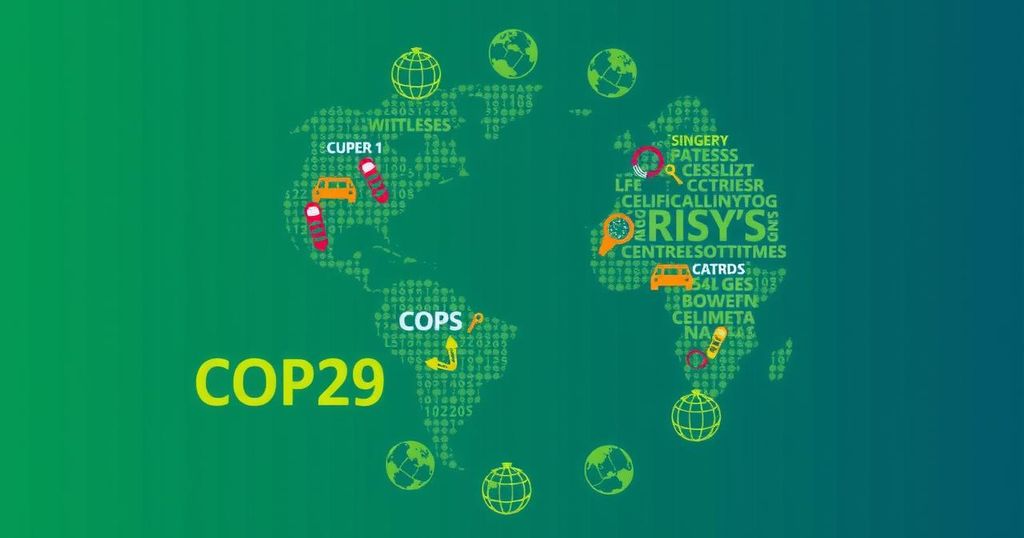COP29 in Azerbaijan resulted in a $300 billion annual climate finance commitment, met with mixed reactions from delegates, some viewing it as a breakthrough, while others deemed it insufficient. Developments around U.S. climate commitments and geopolitical tensions further complicated negotiations, resulting in significant dissatisfaction among developing nations demanding more robust support. Future climate action remains clouded by political uncertainty and emerging global conflicts.
The recent COP29 summit in Azerbaijan concluded with a significant yet controversial outcome: a commitment to provide $300 billion annually to assist developing nations in combating climate change. Responses to this deal were polarized, with some delegates expressing relief and others leaving frustrated. COP29 President Mukhtar Babayev initially prepared two speeches—one for a successful deal and another addressing a potential stalemate, which highlights the tumultuous nature of the negotiations. While the adoption of the finance plan was lauded as a breakthrough, many participating nations criticized it as insufficient to meet the urgent climate challenge.
During the summit, the lack of consensus on crucial issues, such as the transition away from fossil fuels, underscored the divisions among nations. Notably, the agreement fell short of the developing countries’ expectations, with a call for $1.3 trillion a year in climate finance, leading to accusations of betrayal. Additionally, the looming return of a climate-skeptical administration in the United States cast a shadow over the negotiations, causing anxiety among delegates regarding future commitments to climate action. Despite these challenges, a significant framework for carbon markets within the Paris Agreement was finalized, marking a notable step forward in climate policy following nearly a decade since its inception.
The complexities of global political dynamics, including the ongoing conflicts in Ukraine and the Middle East, restricted available funding and shifted the focus from environmental priorities to immediate security concerns. As Brazil prepares to host COP30, the disappointment and mistrust that emerged from COP29 are likely to pose considerable hurdles. The precarious balance between rich and developing nations remains a pressing concern as the world confronts escalating climate threats, with experts highlighting the urgent need for revitalized multilateral cooperation to achieve meaningful climate action.
COP29 held in Azerbaijan aimed to address the escalating challenges of climate change, particularly from the perspective of developing nations. The summit adopted a finance target intended to support poorer countries, which are disproportionately affected by climate impacts despite contributing little to the problem. The negotiations were mired in disagreements, with significant disparities in expectations and realities. As rich nations have historically underdelivered on their climate finance commitments, tensions flared, particularly around inadequate binding promises and the uncertainties presented by the return of a potentially hostile U.S. administration. This reflects broader issues of global trust and cooperation amidst a backdrop of rising global temperatures and geopolitical unrest.
The COP29 summit underscores a critical moment in climate negotiations, revealing underlying fractures in global cooperation on climate issues. The adoption of a $300 billion finance commitment is overshadowed by dissatisfaction from many developing countries who view it as inadequate. The divisions emphasized at this summit portend significant challenges ahead, particularly as Brazil prepares to host COP30, where restoring trust and reaching effective agreements will be paramount to effectively addressing the urgent threats of climate change.
Original Source: www.asiafinancial.com






